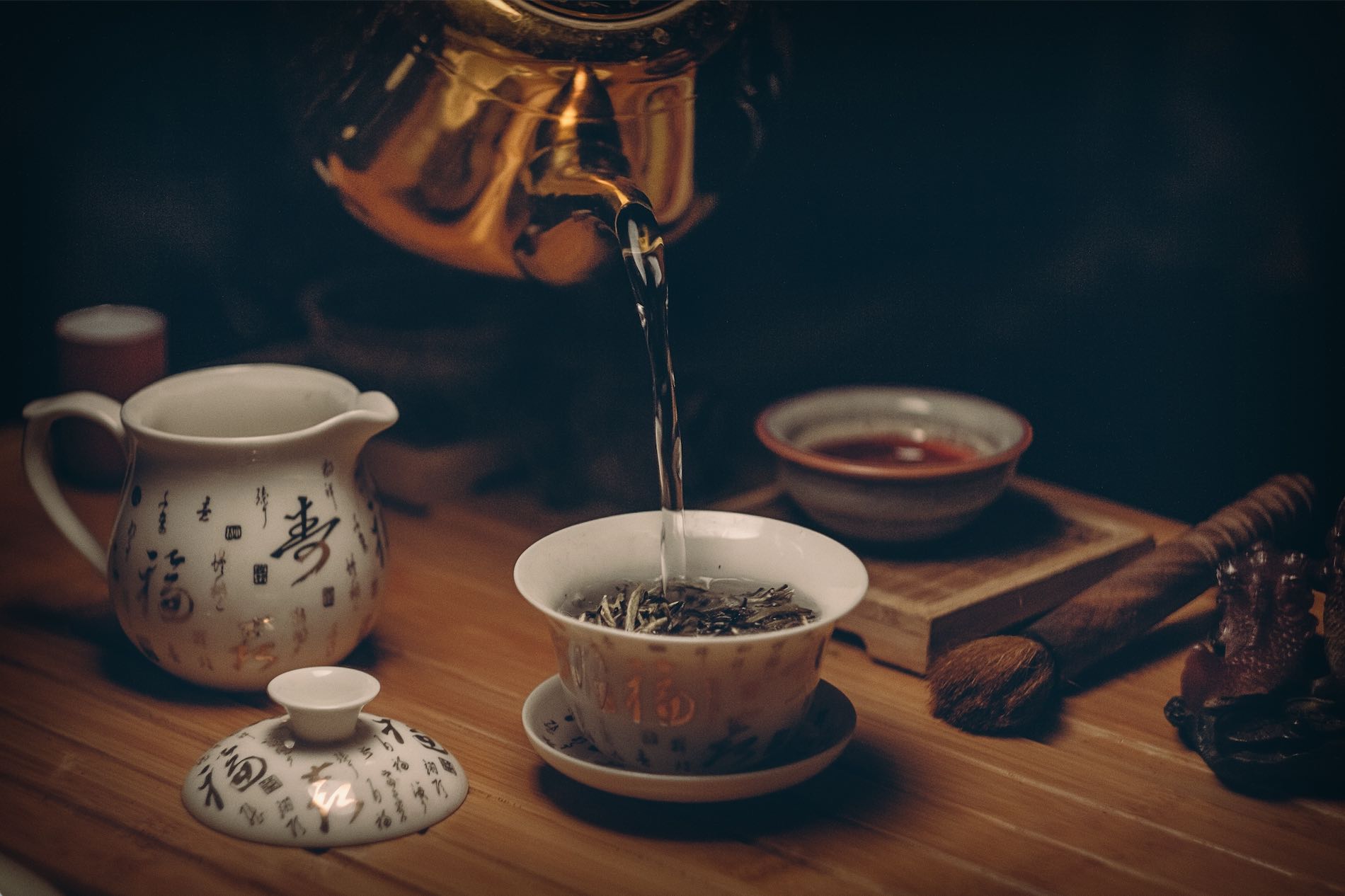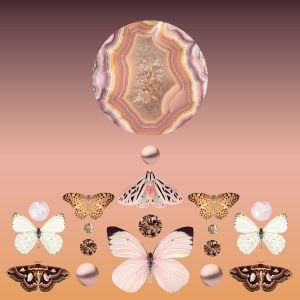The Answers to Your Problems Are Hiding in Your Tea Leaves

Tasseography is the art of reading tea leaves to divine fortunes, a practice which began in 17th-century Britain when tea made its way over from China. Hoping to dispense with some of the more dangerous soothsaying methods, like using molten metal or hot wax, reading dried tea leaves in a cup was an excellent compromise, as you could enjoy a tasty beverage and learn about your future, too.
Drink It In
The process is relatively simple. Let the person you’re reading for select a loose-leaf tea, a handled cup, and a saucer. Place a large pinch of tea leaves in the cup and pour in some hot water. Allow the tea time to brew, then direct the querent to sip while meditating on what they’d like to know. Tell them to leave about a teaspoon of water in the cup to linger with the leaves. When they’re done, they should grasp the cup by the handle and swirl it around clockwise three times, then flip it upside-down onto the saucer to let the water drain out. Pro tip: Put a napkin on the saucer, especially if you’re using glass, to ensure nothing chips and to soak up the excess liquid. Finally, flip the cup upright on the saucer and observe the sodden leaves.
As the reader, you’ll be looking for different symbols formed by the tea leaves within the cup and interpreting what they mean. Feel free to pick up the cup and observe from different angles on your hunt for shapes. And keep in mind the location of the symbols in the cup is important, too: the rim of the cup relates present day and the prediction moves forward in time the deeper you go. The handle represents the person getting the reading, so any shapes close to the handle likely has either had a direct impact on them already or will in the future.
Peer into your future with a consultation with an intuitive advisor.
A Seer’s Symbols
Once you begin reading tea leaves regularly and get comfortable with the way things pour out, you’ll be able to start seeing shapes and interpreting them yourself. But until then, these common symbols and their accompanying meanings offer a solid starting point.
Anchor: An anchor signifies success in love or business—but if it’s blurry, there will be challenges to reaching that success.
Arrow: Unfortunately, this doesn’t mean travel or hitting the target. Arrows signify bad news.
Heart: Think love, marriage, or an upcoming affair. If indistinct, the shape has a negative connotation.
Hourglass: There’s a decision to be made, and a specific timeframe in which to make it.
Line: Lines represent progress and journeys. Straight lines mean a straightforward and direct route, while wavy or broken lines mean the path will have obstacles.
People: The interpretation of this symbol depends on what the person in the cup is doing, as well as the feeling you get from the symbol. A fighting pair, for example, is negative, but if it looks like they’re holding hands, that’s positive. Use your intuition.
Sun: This represents happiness, power, or a successful endeavor.
Triangle: Triangles represent an unexpected windfall of good fortune. The more triangles, the better.
Keep in mind that reading tea leaves is highly subjective; as with Tarot and other types of fortune-telling, the results should be tailored to the person you’re reading for. But if you find that pouring molten metal just isn’t doing it for you anymore, grab a glass and some relaxing tea and try leaf reading for yourself.
Image by Toa Heftiba via Unsplash
What do the Tarot cards say about your life? Find out now. Get a FREE Tarot reading.



